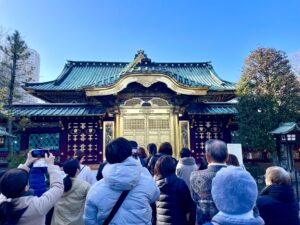“Oyasumi” is one of the most widely recognized phrases in Japanese, meaning “good night.” While simple, its usage varies depending on the context, level of formality, and relationships. This guide unpacks the different nuances, cultural meanings, and practical tips for incorporating “Oyasumi” into your Japanese language skills.
What Does “Oyasumi” Mean?
“Oyasumi” (おやすみ) is a casual Japanese phrase used to say “good night.” Derived from the formal expression “Oyasuminasai” (おやすみなさい), it conveys a warm, relaxed tone often used among family members, friends, or close acquaintances. Linguistically, “Oyasumi” originates from the verb “yasumu” (休む), meaning “to rest” or “to sleep,” with the prefix “o-” adding a touch of politeness.
In daily conversations, “Oyasumi” appears frequently:
- Example 1: After a family dinner, a child might say, “Oyasumi!” before heading to bed.
- Example 2: Friends leaving a late-night gathering might casually part ways with “Oyasumi.”
For formal settings or respectful interactions, such as speaking to elders or superiors, “Oyasuminasai” is preferred, emphasizing respect and decorum.
The Difference Between “Oyasumi” and “Oyasuminasai”
The primary difference between “Oyasumi” and “Oyasuminasai” lies in their level of formality. While “Oyasumi” is informal and suited for close relationships, “Oyasuminasai” is the polite alternative, commonly used in professional environments or with people of higher status.
- Context for “Oyasumi”: Among siblings or friends, “Oyasumi” feels natural and relaxed.
- Context for “Oyasuminasai”: Employees might use “Oyasuminasai” when bidding good night to their manager.
Sample Sentences:
- Casual: おやすみ、また明日ね! (Oyasumi, mata ashita ne!) – “Good night, see you tomorrow!”
- Formal: おやすみなさい、お疲れ様でした。(Oyasuminasai, otsukaresama deshita.) – “Good night, and thank you for your hard work.”
Understanding these nuances helps learners navigate social situations with ease and confidence.
Cultural Significance of Saying Good Night in Japan

In Japanese culture, greetings and farewells like “Oyasumi” carry a profound sense of connection and respect. These exchanges reflect Japan’s societal emphasis on politeness and interpersonal harmony. Historically, nightly farewells have symbolized wishes for safety and rest, echoing community values.
Regional dialects and cultural expressions also play a role:
- Osaka Dialect: “Oyasumi ya” maintains the casual tone with a regional flair.
- Cultural Insight: In traditional settings, children often hear bedtime wishes accompanied by storytelling, deepening familial bonds.
Understanding the broader cultural context enhances appreciation of the seemingly simple phrase “Oyasumi.”
Tips for Using “Oyasumi” Naturally
For non-native speakers, using “Oyasumi” effectively involves paying attention to tone, context, and pronunciation.
Practical Tips:
- Pronunciation: Break it into syllables: “O-ya-su-mi.” Emphasize a smooth, relaxed tone for casual interactions.
- Context: Use “Oyasumi” with peers or family; reserve “Oyasuminasai” for formal occasions.
Do’s and Don’ts Table:
| Do’s | Don’ts |
| Use “Oyasuminasai” with superiors | Use “Oyasumi” in formal settings |
| Pair with a smile for warmth | Mispronounce as “Oyasume” |
| Match the phrase to the situation | Forget regional or situational nuances |
Practicing these tips fosters confidence and clarity in real-life interactions.
Advanced Insights: Variations and Expressions Related to “Oyasumi
Beyond “Oyasumi” and “Oyasuminasai,” other nighttime expressions enrich conversational variety:
- “Yoi yume o” (良い夢を): “Sweet dreams.”
- “Oyasumi” (おやすみ): A slightly formal alternative.
- Modern Slang: Phrases like “Oyasumi~” in text messages reflect youth trends.
In literature and media, “Oyasumi” often appears in heartfelt goodbyes, reinforcing its emotional resonance. Popular anime and films frequently depict characters using the term in poignant, relatable moments, connecting audiences to its deeper meanings.











